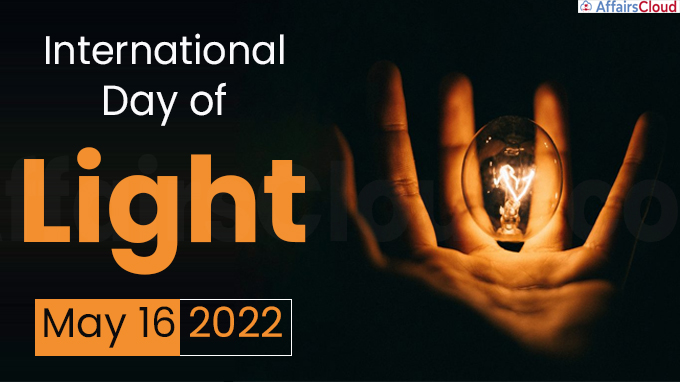
International Day of Light(IDL) is annually observed across the globe on 16th May to celebrate the role of light in science, culture and art, education, and sustainable development, and in fields as diverse as medicine, communications, and energy.
- The observance of the International Day of Light calls to strengthen scientific cooperation and harness its potential to foster peace and sustainable development.
- The day marks the anniversary of the first successful operation of the laser in 1960 by physicist and engineer, Theodore Maiman.
Background:
i.In 2015, United Nations(UN) observed the International Year of Light and Light-based Technologies 2015 (IYL 2015) to create global awareness of the achievements of light science and its applications.
ii.Following the success of IYL 2015, Ghana, Mexico, New Zealand and Russia placed a resolution to the United Nations Educational, Scientific and Cultural Organization(UNESCO) Executive Board supporting the idea of an International Day of Light.
iii.The resolution was adopted on 19th September 2016, at the Board’s 200th session at the UNESCO headquarters in Paris, France.
iv.In November 2017, The UNESCO’s General Conference adopted the 39 C/Resolution 16 and proclaimed the 16th May of every year as the International Day of Light.
The first ever International Day of Light was observed on 16th May 2018.
Key Points:
The IDL is administered by the International Basic Science Programme (IBSP) of UNESCO, and its Secretariat is located at the Abdus Salam International Centre of Theoretical Physics (ICTP) at Trieste, Italy.
Objectives of IDL:
- To Improve the public understanding of how light and light-based technologies touch the daily lives of everybody
- To highlight and explain the connection between light and art and culture and enhance the role of optical technology in preserving cultural heritage.
- To Build worldwide educational capacity through activities targeted on science for young people, addressing issues of gender balance, and focusing especially on developing countries and emerging economies.




